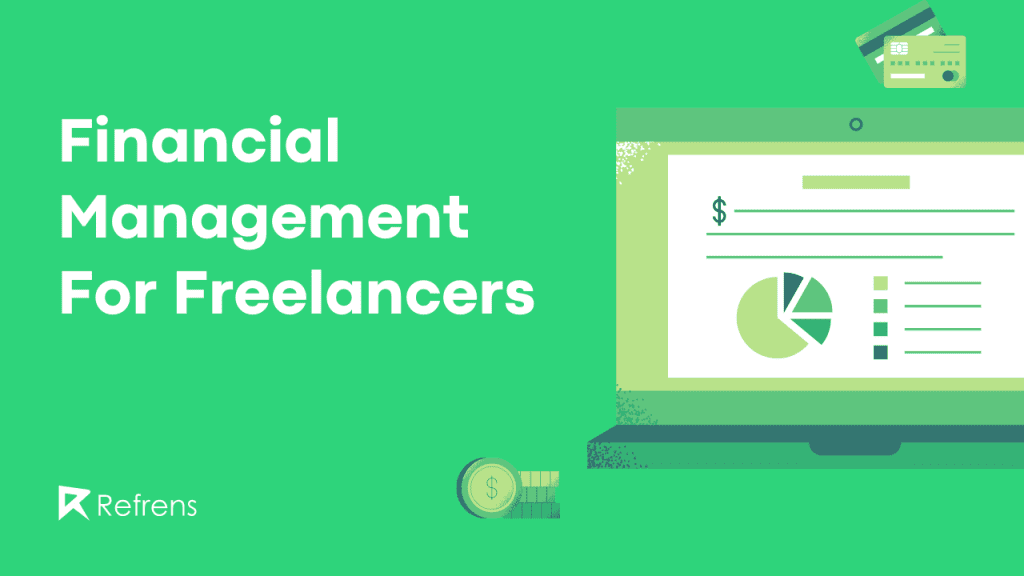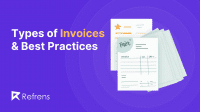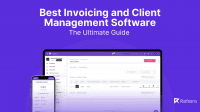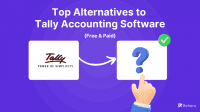Being your own employer, having flexible working hours, and the freedom to choose your employment all contribute to the rewarding life of a freelancer.
However, being a freelancer has its own set of obstacles. You are exclusively responsible for getting into work and handling your time and resources as a freelancer, in addition to dealing with uncertain income. As a freelancer, you are a one-man show, and you must fulfill all of the tasks and obligations.
Moreover, freelancers also do not have access to all employment benefits. Therefore, they must deal with financial issues on their own, such as taxes, unplanned bills, and late-paying clients, to mention a few.
Don’t let a lack of consistent income flow prevent you from pursuing your goal of working as a freelancer. The benefits of freelancing can be tremendously beneficial with careful planning. If you’re a freelancer who’s having trouble managing your finances, it’s time to breathe a sigh of relief.
Besides, use these helpful strategies to manage your finances and take control of your hard-earned money.
What Exactly Is Financial Planning, And Why Is It Necessary?
Simply explained, financial planning is a long-term approach that assists you in covering current and future spending while mitigating the effects of unforeseen events.
Financial planning not only assists you in covering the expenses of fixed charges (such as rent or utility bills), but it also assists you in managing the less appealing aspects of freelancing.
Aside from your monthly bills, financial planning assists you in creating a secure future.
Assume you want to buy a home or have children. Financial planning allows you to distribute your current income to pay part of your future needs.
Financial planning also assists you in preparing for job advancement and staying in business if circumstances change. With a solid financial plan in place, you’re less vulnerable to the effects of difficulties, such as the loss of a customer or a market downturn.
7 Financial Planning Habits For Freelancers & Entrepreneurs
1. Keep Track Of Your Earnings
The first step in managing your finances as a freelancer is to keep track of your earnings.
How much money did you make this month? Was the pay higher than the prior year?
Gaining an understanding of these criteria will enable you to better plan for the peaks and valleys in your career graph.
Most freelancers are unable to keep a record of their income, and this uncertainty makes the resources appear unmanageable and unpredictable.
To get out of this position, keep a spreadsheet of your freelance income and utilize the data to plan ahead of time for the feast and famine cycle.
2. Keep An Eye On Your Spending
It is also critical to keep track of where your money goes. Expenses here do not refer to the set expenditures (rent, taxes, insurance) that you cannot live without, but to the flexible ones that can be adjusted if necessary.
Keep note of your previous monthly costs and search for areas where you may simply cut back if necessary. You’ll be shocked at how much money you may save on these last-minute shopping sprees.
Moreover, compare your average expenses to your average income and plan your budget accordingly. A little self-discipline will help you save a lot of money that you can later use to fulfill your dreams.
Working from home allows you to save money that might otherwise be invested in coffee shops, meals, after-work fun, and even commuting. Freelancers can also save a lot of money by using coworking spaces instead of personal offices.
You have access to all basic office amenities, a comfortable working zone across the city, and quick snacks to satisfy your hunger cravings. All of this is available at low-cost rental options that are even redeemable. This one is absolutely worth a shot.
3. Always Maintain A Budget
Intelligent income budgeting will assist you in providing financial security in your inconsistent freelance profession.
Budgeting also enables you to handle your personal (groceries, fees, car, etc.) as well as company spending intelligently (software, insurance, taxes, etc).
Over and above, financial gurus insist on beginning with a 50/30/20 split. Your after-tax income is then divided into 50 percent for needs, 30 percent for flexible expenses, and 20 percent for savings under the aforementioned program.
Moreover, keep different personal and business accounts. This will help you divide your money into manageable amounts. Separate accounts will keep you calm in the face of uncertain earnings and will help you avoid overspending.
Here’s how you can go about it:
- Account for Business: Use this account to receive payments from your customers. The figures presented here provide an estimate of your fair share of earnings. This is your actual paycheck account, and any funds put here will be used to cover expenses. It will assist you in keeping track of clients that do not pay.
- Personal Account: The money in the personal account comes solely from the business account and should be a nominal amount created at regular periods. Transferring the full sum from your business account to your personal account will leave you in a bind. As a result, be cautious when separating data for your personal account from those for your business account.
4. Maintain Good Tax Management
Handling taxes is one of the most stressful aspects of being a freelancer. Filing your annual tax return is the most time-consuming task, especially if you do it at the last minute. Missing the deadline dates will simply result in extra penalties, and because you are running out of time, the likelihood of missing out on a big portion of earnings is extremely high.
As a result, in order to manage your funds wisely, file your tax returns as soon as the previous year’s filing is completed.
Check out our blog for the finest suggestions on how to manage your taxes as a freelancer!
5. Plan For Both Short-term & Long-term Savings
Savings are critical, especially if you intend to work as a freelancer. Working as a freelancer can be extremely predictable. As a result, before embarking on the road of ‘becoming your own boss,’ it is recommended that you accumulate at least three months of income in advance to ensure your financial security while dealing with the “troughs” in your career.
Short-term or emergency savings are critical for meeting unforeseen bills and managing your finances.
Moreover, setting money aside for emergency savings allows you to deal with unexpected expenses such as health check-ups or auto repairs without having to dip into your long-term resources.
Additionally, in a freelance profession, you should save three to four months’ worth of money for long-term savings. These reserves allow you to be financially secure as you navigate the inevitable “valleys” of your freelancing career.
6. Make A Retirement Plan
Most freelancers skip retirement planning while they are at the pinnacle of their careers, despite the fact that it is critical. As a freelancer, you do not have an employer to set up and fund your retirement funds. According to experts, it is prudent to put 20% of your current salary in any retirement plan.
7. Establish Reasonable Freelancing Rates
While it is crucial to be diligent with your money, it is the bare minimum if you are not earning enough. Re-evaluate your freelancing prices to ensure you are getting fairly compensated, and if not, try raising your fees.
Connect with other freelancers to obtain a good understanding of the industry’s usual freelancing rates, and then increase your hourly costs proportionally. This will assist you in determining how much you should charge your first-time clients.
The financial burden decreases as you begin to create more income.
Wrap-Up: Financial Planning As Freelancers
Freelancing is a gratifying experience and may be a profitable business if you can sustain and manage a good quantity of cash flow.
You don’t need a fancy financial degree to manage your money as a freelancer; just remember the basics:
- Keep track of your finances using a budget.
- Once a week, check in with your funds.
- Set up money for emergencies and future growth.
- Set up money for taxes.
- Use the best tools for this
Freelancing income is never constant. Learning to handle your finances strategically is the secret to enjoying the freedom that comes with freelancing.


















